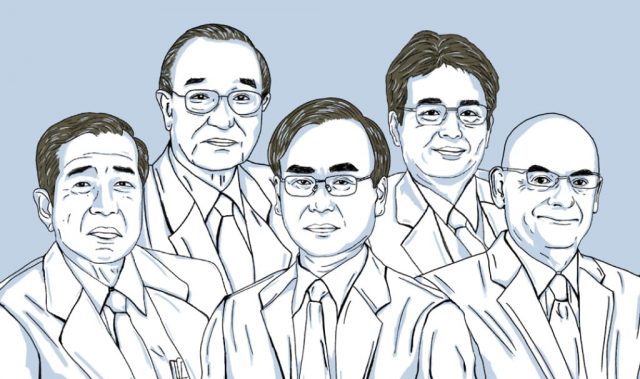
AsianScientist (Apr. 14, 2015) – Japanese researchers have identified the target recognized by majority of patients with antiphospholipid syndrome (APS), a disease that causes thrombosis or recurrent miscarriages.
Their results, published in Blood, suggest that self-antigens complexed with HLA class II immune molecules could be general targets in autoimmune diseases such as rheumatoid arthritis, Graves’ disease and Hashimoto’s thyroiditis.
APS is an autoimmune disease characterized by the production of antibodies which attack self phospholipids. Although the protein β2-glycoprotein I (β2GPI) complexed with phospholipid is recognized as a major target for autoantibodies in APS, less than half of the patients with clinical manifestations of APS possess autoantibodies against such complexes, suggesting that other unknown self antigens are involved.
A group of researchers led by Professor Arase Hisashi from Osaka University and Dr. Tanimura Kenji from Kobe University have found that most APS patients do indeed react to β2GPI, but only when it is intact and in complex with HLA class II molecules on the surface of the cell, rather than the peptide form as previously assumed.
They found that 100 out of 120 of the APS patients tested (83.3 percent) possessed autoantibodies that recognized the β2GPI/HLA II complex, even when their levels of antiphospholipid antibody were in the normal range. Furthermore, the β2GPI/HLA II complex was found in the uterine tissue of APS patients but absent in healthy controls.
The authors suggest that the β2GPI/HLA II complex could be a useful biomarker for APS. They also propose that the presentation of self antigens by HLA molecules could be a general mechanism of many other autoimmune diseases, expanding the range of therapeutic targets.
The article can be found at: Tanimura et al. (2015) β2-glycoprotein I / HLA Class II Complexes Are Novel Autoantigens In Antiphospholipid Syndrome.
———
Copyright: Asian Scientist Magazine; Photo: Osaka University.
Disclaimer: This article does not necessarily reflect the views of AsianScientist or its staff.












